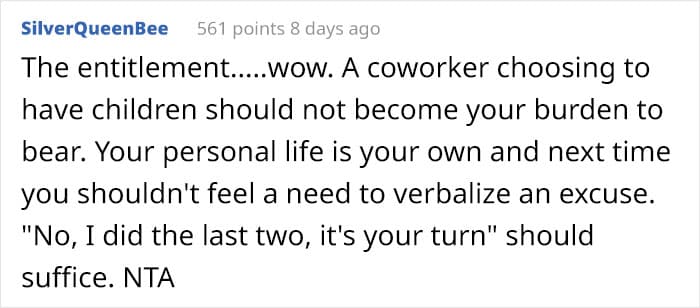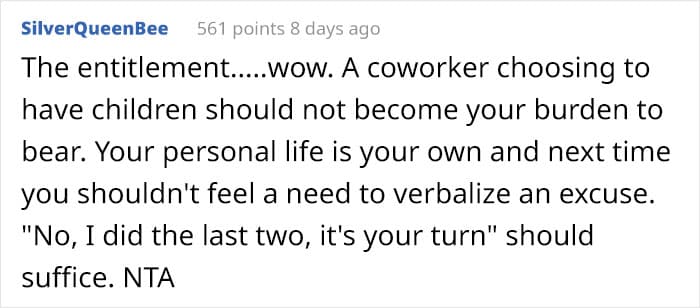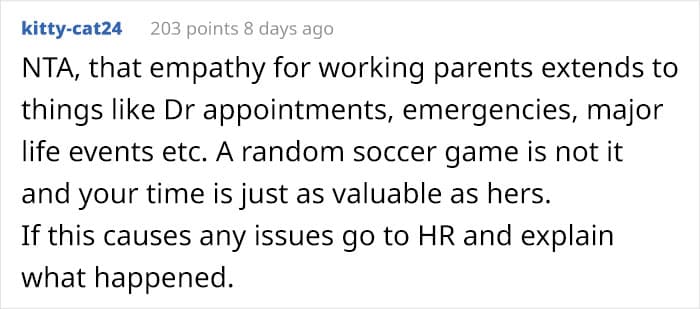One woman was asked by her coworker to cover an evening call at work so she could attend her kid’s soccer game. The author of this post had a volleyball match that night and refused, saying that her out-of-work activities are not less important just because she chose to be childfree. The colleague scoffed at her, claiming this was a “super messed up” thing to do.
Having kids isn’t a free pass to get out of work commitments you prefer not to do.
The woman turned to the moral philosophers of the internet, the AITA subreddit, asking whether she was in the wrong for thinking that others should value her personal life choices.
This Redditor turned to the AITA subreddit for advice after refusing to cover for her coworker so she could go to her kid’s soccer game






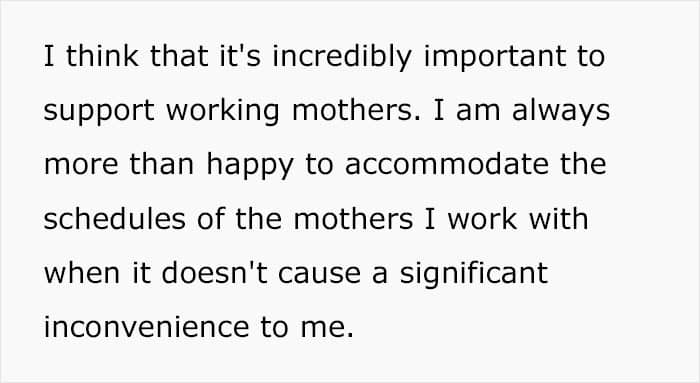



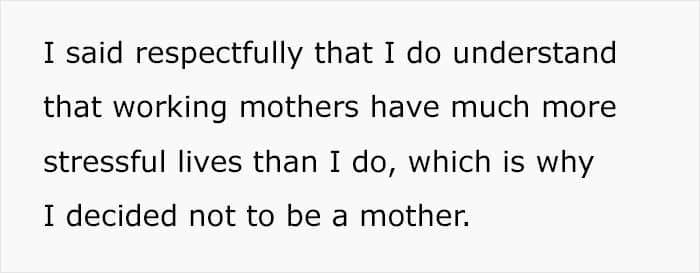
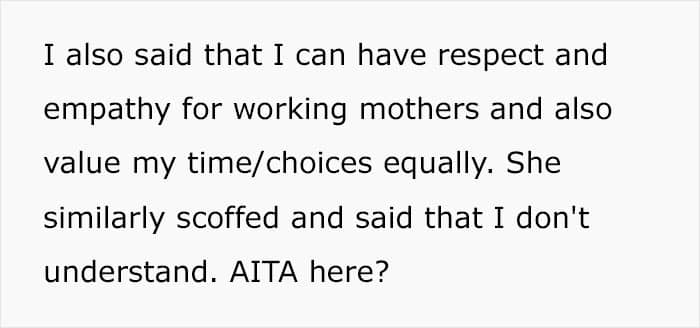
As of this day, the post has amassed more than 17K upvotes and more than 2.2K comments. The vast majority of Redditors sided with the author, deciding she was in no way acting like a jerk in this situation. People mentioned that her boss needed to remember that she had already taken two previous shifts and should not have been asked to work in the first place.
While many believe that today women can do pretty much what they want with their lives, there’s still a lot of stigma to being childfree by choice. Our society views parenting as one of the key factors to finding fulfillment and meaning in life. Meanwhile, determining to remain childless raises many questions and is often viewed unfavorably.
It seems that the number of adults deciding to remain childfree keeps growing each year. Researchers from Michigan State University decided to study how they feel about their life choices. Almost 1000 people participated in the study, where scientists examined “how childfree individuals differ from parents and other types of non-parents in life satisfaction, political ideology, and personality,” and to see whether they are “viewed as an outgroup”.
“There’s been a lot of talks recently about declining fertility rates in the United States and around the world, and at the same time, more and more people are being open about their choice not to have kids,” Jennifer Watling Neal, Ph.D., one of the study’s researchers, told Verywell Mind. “We really wanted to understand these child-free people a little bit better.”
People were asked a series of questions: whether they have or ever have had biological or adopted children, whether they plan to have or adopt children in the future, and whether they wish they had or could have children. The study found that over a quarter of Michigan adults identified themselves as childfree.
“We find no differences in life satisfaction and limited differences in personality traits between childfree individuals and parents, not-yet-parents, or childless individuals,” the researchers revealed.
In fact, people who chose not to have kids “were more liberal than parents”. Also, those who wish to be parents or those who aren’t able to have children felt “substantially less warm toward childfree individuals than childfree individuals felt toward each other.”
“People are equally satisfied with life regardless of their reproductive choices, and that makes sense that people are making the decisions that are right for them,” Watling Neal said.







